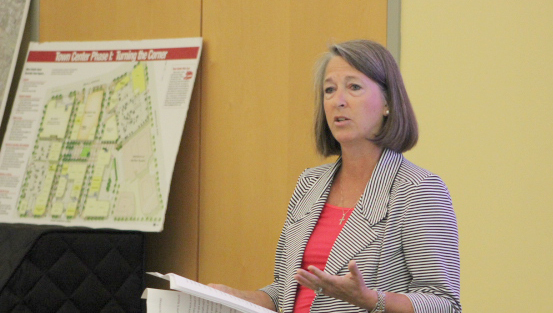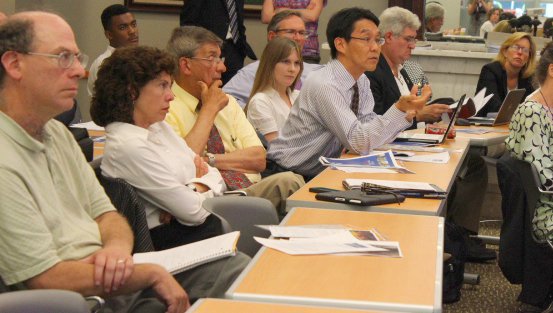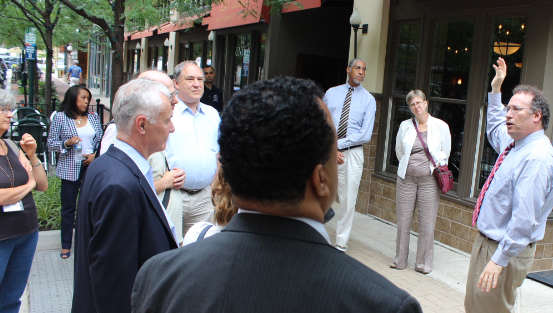Despite being one of the most prosperous regions in the nation major economic disparities can be found throughout metropolitan Washington. For example finding affordable housing or quality-work are significant challenges for lower income residents. To learn more about these issues and ensure all residents are included in the region’s prosperity the Region Forward Coalition gathered on Friday July 18th at the Library in Rockville Town Square for its quarterly meeting.
Presenting on the recent report Housing Security in the Washington Region Peter Tatian from Urban Institute Hilary Chapman from COG and Silvana Straw from the Community Foundation for the National Capital Region highlighted some of the major challenges related to housing the region’s population:
- Incomes are high but so is the cost of living – the Washington metropolitan area had the largest increase in rental housing costs among the 15 largest metro areas between 2008 and 2012. As a result of this increase real per capita incomes in the area fell by four percent over this period.
- 33 percent—576000 households—of the region’s total households are low very low or extremely low income.
- Regionwide public housing and vouchers serve only 1 in 3 extremely low income households—those most vulnerable and in need of stable and affordable housing. While jurisdictions vary widely in the number of vouchers or public housing units they have per 100 households ranging from 21 per 100 households in Fairfax County to 43 per 100 households in the District of Columbia these subsidies weren’t enough to cover even half of extremely low income households in any jurisdiction.

The meeting also featured a presentation on Bursting the Bubble: The Challenges of Working and Living in the National Capital Region a recent report released by the Commonwealth Institute DC Fiscal Policy Institute and Maryland Center on Economic Policy. Jeff Connor-Naylor of the Commonwealth Institute Jenny Reed of DCFPI and Benjamin Orr of MDCEP outlined the study’s main conclusions: prosperity is not broadly shared in the region and since the beginning of the recovery wages have fallen for workers.
The report highlights the divergent employment prospects for workers with and without college degrees: while there has been an increase of more than 200000 jobs for highly educated workers (bachelor’s degree of higher) since before the recession employment for workers with less than a college degree has dropped by over 110000 over the same period. Jobs in industries such as construction information services and transportation and utilities—many of which have traditionally provided stable employment and ladders to the middle class for workers without a college degree—remain significantly lower than before the recession. And while the region has added many high-paying jobs in industries like public administration and professional and business services the gains also include large increases in jobs in leisure and hospitality (such as retail) and health services (such as home health aides) that do not pay living wages.

Coalition members discussed how these housing and employment challenges could be addressed regionally. One key theme emerging from the discussion was the need to better engage the business sector in the Coalition and in efforts to solve these problems generally. Moving forward Coalition members will also work with COG staff and regional partners to develop a regional labor and industry analysis to inform more effective workforce development and identify tools and policies that will increase the supply of affordable housing located in Activity Centers.